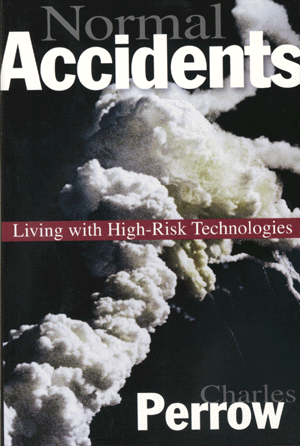Perrow, Charles. 1984, 1999. Normal Accidents: Living with High-Risk Technologies. Princeton University Press.

This classic of organizational sociology doubles as the cornerstone of a genre sometimes dubbed “disaster studies” and presents crucial insights for scholars of technological accidents and disasters in both contemporary and historical contexts, regardless of their primary discipline. Perrow’s thesis about “system accidents” occuring in tightly coupled and complexly interactive systems helps facilitate an understanding of the combination of past so-called trivial and the current catastrophic accidents at the Fukushima reactors. For example, Perrow describes untoward interactions between unrelated components due simply to physical proximity (such as the location of the spent fuel pools on the upper floors of the same buildings housing the GE Mark 1 containment vessels) and the crucial role of informational opacity (the inability to know the actual state of the system or its parts due to unreliable sensors or inaccessible components). Chapters 1 and 2 offer detailed descriptions of actual reactor incidents, particularly Three Mile Island. The updated 1999 edition contains a new afterword and a new postscript by Perrow. Reading level: advanced undergraduate. –Tyson Vaughan
Note: This appeared originally as a sample annotated citation for Teach 3/11. We welcome scholars and graduate students to participate in this project.
![[Teach311 + COVID-19] Collective](https://blogs.ntu.edu.sg/teach311/files/2020/04/Banner.jpg)